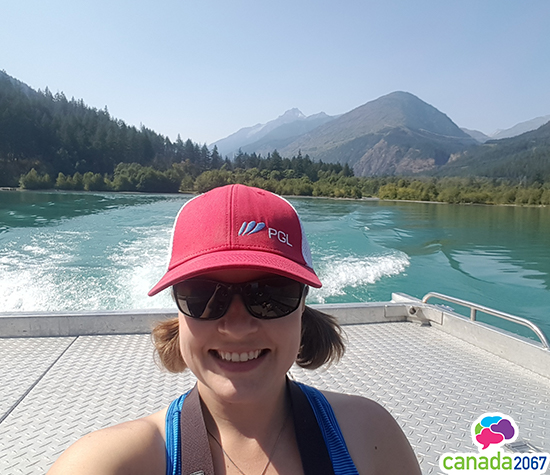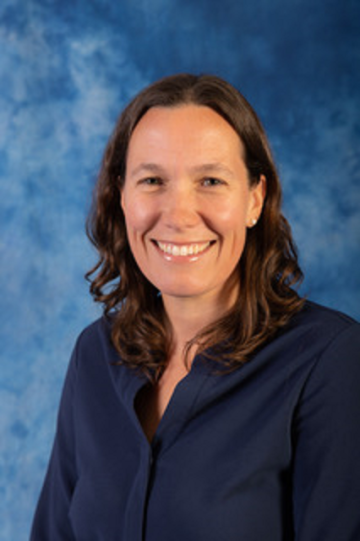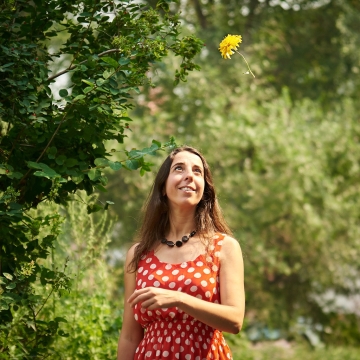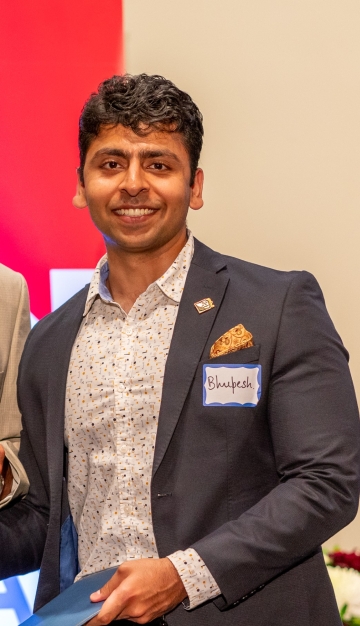Katharine Scotton


About me
I was born/grew up in: Born and raised in North Vancouver, BC, with a few years in Campbell River, BC Canada.
I now live in: Vancouver, BC, Canada
I completed my training/education at: Bachelor of Science in Conservation Biology from the University of British Columbia, and a Diploma of Technology in Fish, Wildlife and Recreation from the British Columbia Institute of Technology
What I do at work
My work can vary, so a typical day doesn’t exist. Seasonally, I am most busy in the late spring to early fall months. At this time I do a lot of field work, often in remote areas. In the winter I hunker down and get caught up on reports, work programs, and local field surveys.
STEM skills that I use include math and technology, particularly statistics, and the use of specialized equipment. General knowledge of chemistry, physics as well as biology, geology and soil sciences is also relevant. Specific knowledge of animal and plant ecology, behaviour, and life cycle is a large part of what I use on a day-to-day basis.
Equipment that I use in the field includes water quality meters for measuring pH, conductivity, dissolved oxygen, turbidity, salinity and temperature. I also collect water and soil samples for lab analyses. Then I interpret results back at the office. Backpack electrofishing units and Passive Integrated Transponder (PIT) tag readers are used when conducted fish surveys, which make me look like a Ghostbuster. I regularly use GPS units, cameras, and rangefinders. Less techy equipment that I use includes binoculars, field guides, nets for fish or kick nets for benthic invertebrates, scales, and clinometers, among others small items.
Problem solving is a large part of my job. Problem solving may be in the form of figuring out logistics for a field program and fixing equipment in a remote area, or it may be more analytical, such as determining the significance of impact for an environmental assessment.
With decision making, I find it best to go back to the original issue and start from there. What am I trying to accomplish? What data do I need to acquire? If I can break the decision down into smaller steps, the overall end result for the decision becomes clearer. Complex decisions, such as determining significance of impact may require many steps and smaller decisions or qualifiers. Tools like tables and flow charts help to visualize the problem and guide the decision. A background in STEM helps the decision making process by coming at problems with an analytical approach. I must also apply my knowledge of species and ecosystems to the problem, which can be more qualitative than quantitative in nature. However, there are statistics and quantifications used in determining thresholds, and whether an impact will meet that threshold. Knowledge of water chemistry and understanding basic hydrology is also part of my decision making process.
My team is a small group of professionals ranging from field technicians to senior biologists. We all have specific areas of focus. But being a small team means we also tend to be generalists to a degree. This means that while I may work more frequently on fish and water related projects, I also take part in wildlife and vegetation surveys. We have weekly team meetings to provide updates, share new ideas and technical and regulatory changes, and check-in on how we are doing as a whole. I work regularly with a few people, especially those I do field work with. Others I interact with less frequently; however, it is always enjoyable to mix things up and work with someone I don’t often get a chance to work with. It’s a great learning experience. We all have professional development mentors, so monthly check-ins are a good way to stay on track of progress and growth at the company. Our team has a leader, who I also check-in with every two weeks to share struggles or successes and to work through problems I need assistance with.
I only use English at work; however, I do know the calls and songs of many bird species.
My career path is
I was certain from the time I was seven years old until I was 18 that I wanted to be a veterinarian. I never explored other career options in high school because I had a clear path. Until, after working for a veterinary clinic for two years, I realized that being a veterinarian was not for me. Insert sad trombone sound here.
I fumbled through my first couple years of university with no real direction. I always had an interest in wildlife and conservation. Eventually conservation biology became my focus. However, I was uncertain about the job prospect and what I could do with a degree in that field. I began volunteering and taking side courses to gain experience with wildlife work and outdoor field skills. I applied for every summer field job I could find. After graduation I landed an exciting opportunity volunteering for a peregrine falcon monitoring program in the US. Getting my foot in the door with some real field experience was key.
That first summer in the field I learned the most important thing: this was the type of work I wanted to do. I loved it. It was physically challenging, the hours were bizarre, and I went days without a shower. But I felt alive. I started my tech diploma immediately following my field job, and found the program to be incredibly rewarding. The next three summers I worked as a field technician for grad students, making minimal money, battling bugs, and living in meager accommodations (mostly tents). Again, I loved it.
It was a struggle to get where I am today. I had many failed attempts at finding full-time employment. It always seemed like I only had four out of five key skills the employer was looking for. I've definitely made errors, felt stupid, and felt like I wasn't good enough. Those feelings stick with me, but they have also been valuable lessons. Hard lessons, but necessary lessons. I've cried, been angry, talked it out with trusted mentors, and pulled up my big girl pants and moved on. Every day is a learning opportunity. I love that my job changes so much, otherwise boredom sets in, which can lead to complacency, poor performance, and lack of interest.
I am motivated by
My job changes all the time. For me, this is exciting. I like the variety in tasks, people I work with, and the clients. My job is challenging, and certainly at times stressful. It’s important to remind myself that the challenges and stresses keep things interesting. What excites and interests me is the chance to be involved in some pretty incredible projects. I really love being involved in restoration or species at risk projects. Years later, I can look back or point out a place and say, “I helped build that.”
The field work is what I enjoy most about this job. I get to travel to remote locations, and see parts of the province that most people in BC have never been to. I see wildlife, plants and scenery that people would pay to see. It’s hard work, and physically taxing, but it feels so rewarding at the end of a trip. I get to catch fish and frogs, watch birds, and listen to bats, and get paid to do it all! I feel pretty lucky to have a job that aligns with my passion for the environment.
How I affect peoples’ lives
Having the opportunity to investigate environmental areas of concern, consult with First Nations, and work with Species at Risk is rewarding, and fulfilling. The work I do is important because the world cannot be left in the hands of industry or politicians alone. There needs to be a balance between economics and environment. In the long run, money alone will not sustain us. We cannot eat money or drink oil. If we accept that resource development is necessary, we must also realize that protecting those resources and the ecosystems that support those resources for future generations is the key to sustainable development.
By always holding my work to high standards and producing truthful results, and working diligently to explore all options, I believe the work I produce is an honest representation of the facts. To have integrity in my work is important so that real decisions can be made based on science. And these decisions may be critical in the development of a major project.
Outside of work I
Cooking and hosting friends for dinner is an enjoyable way to catch up with people. A kitchen dance party is a great way to unwind. I play floor hockey from fall to spring, and softball in the summer. I bike to work when I can, and try to make it to the gym once a week. I love camping and hiking, and being outside in general.
I volunteer at a lunch kitchen on the Downtown Eastside once every couple months, and help a friend at a pig rescue sanctuary when I am available. With such a busy schedule, I really love spending time reading, especially weekend mornings when all is quiet. I am the type of person that needs "me time".
My advice to others
Volunteer and gain experience - be it birding, fishing, orienteering, backpacking, whatever. Just get out there and enjoy nature. Be available, be persistent, and find something you love to do. The rest will fall into place as your network grows.
- Math
- Music
- Physical Education/Health
- Science
- Technology
- Other: Student Leadership
- Brought people together
- Liked helping people
- Organized activities for my friends
- Liked being given specific instructions
- Engaged in volunteer activities
- Liked reading
- Felt great satisfaction in getting good grades
- Engaged in activities such as fishing
- Learned best by doing
- Other: Always knew what I wanted to do, until the day that I didn't
Related Topics
Partners

Let’s Talk Science recognizes and thanks Katharine Scotton for her contribution to Canada 2067.





